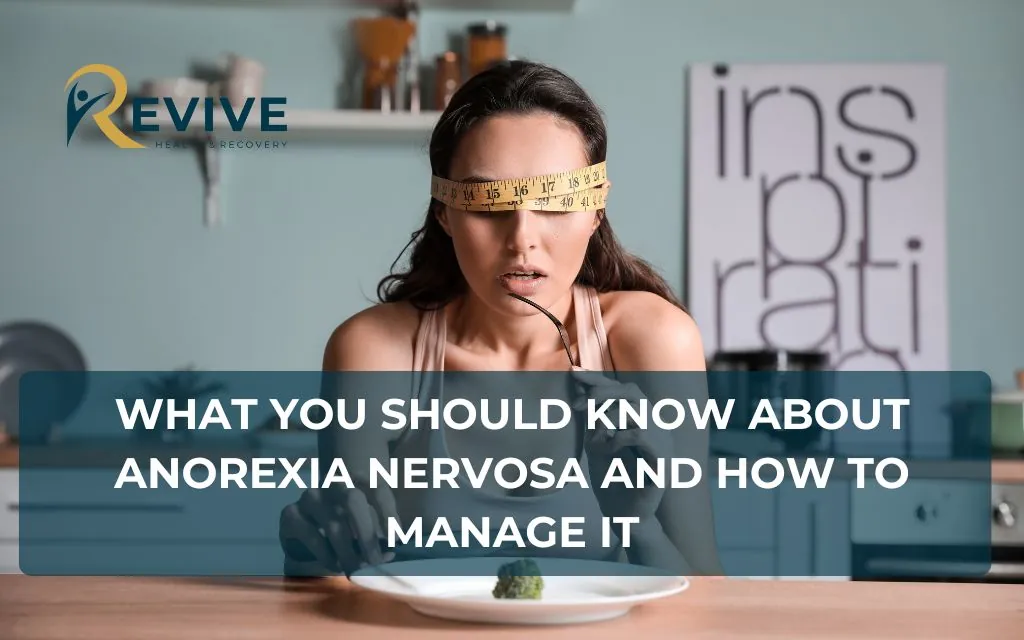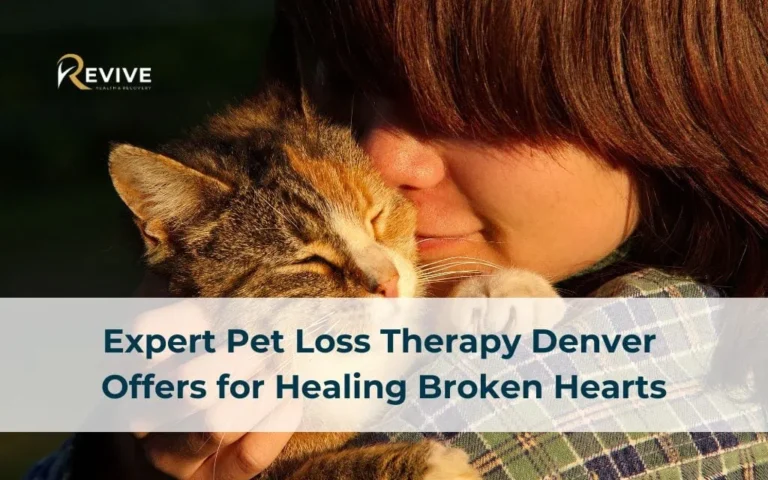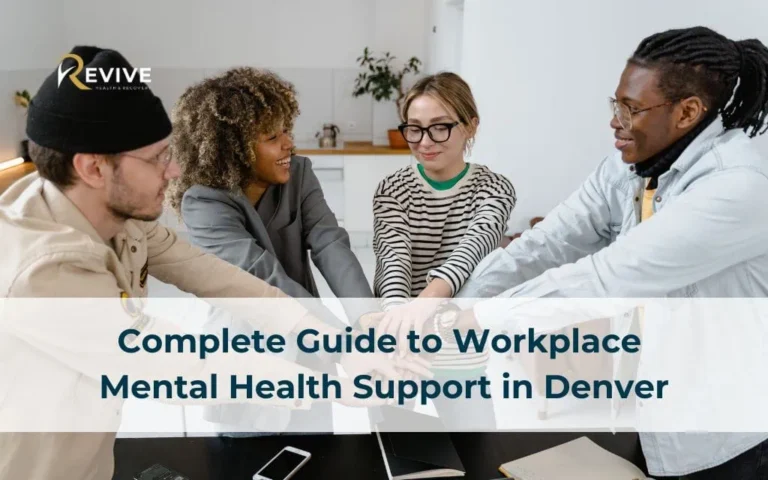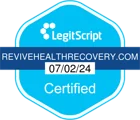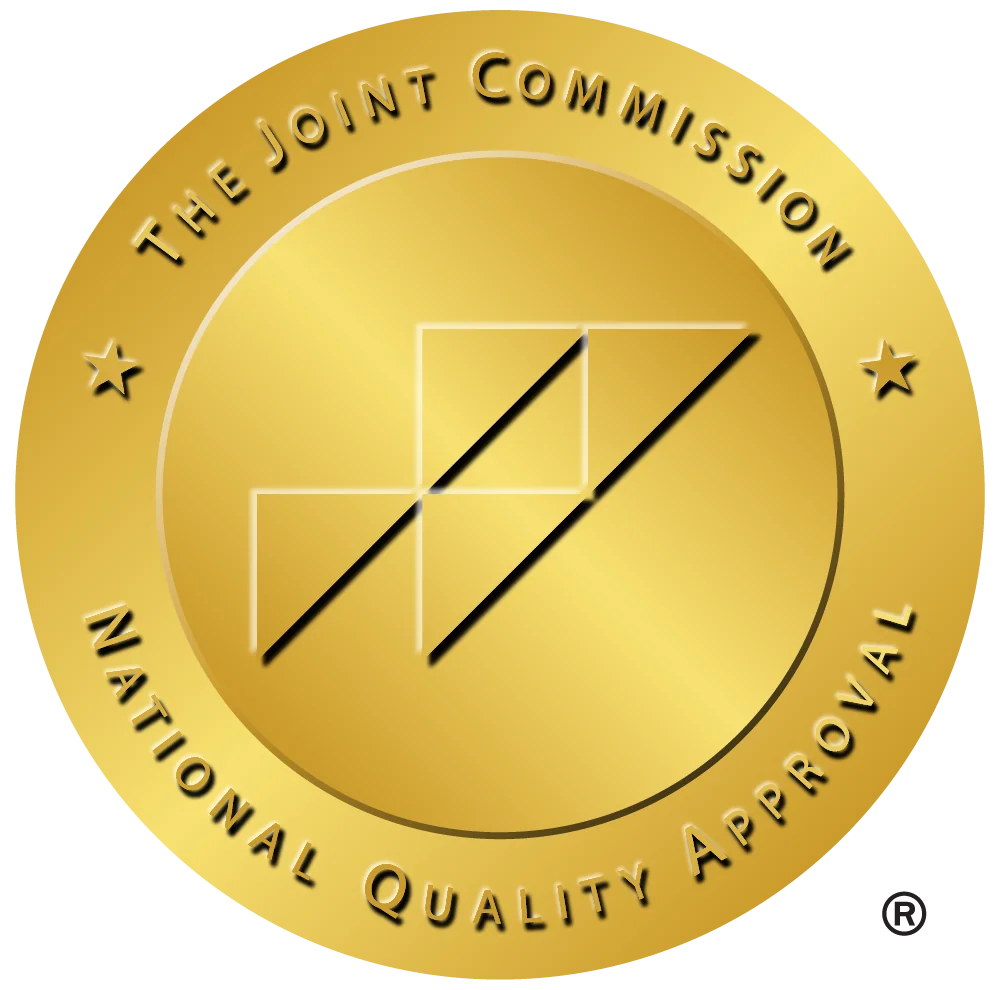Anorexia nervosa is far more than just extreme weight loss – it’s a serious mental health disorder with potentially life-threatening consequences. As one of the most dangerous eating disorders, anorexia nervosa is characterized by abnormally low body weight, an intense fear of gaining weight, and a distorted perception of body image. People with anorexia often don’t see themselves as they truly are, instead viewing their bodies through a lens that tells them they’re overweight even when they’re dangerously thin.
Clinical Definition and Diagnostic Criteria
Clinically speaking, anorexia nervosa is diagnosed when someone restricts their energy intake relative to their requirements, leading to significantly low body weight. This condition affects both males and females, though it’s more commonly diagnosed in females (with a prevalence of 0.16% compared to 0.09% in males).
Healthcare professionals recognize two main subtypes of anorexia nervosa:
- Restricting type: Characterized by severe limitation of food intake without binge-eating or purging behaviors
- Binge-eating/purging type: Involves periods of food restriction interrupted by episodes of binging and/or purging behaviors
Have you been worried about your own eating patterns or concerned about a loved one? Understanding these clinical definitions can help you recognize when professional help may be needed. If you’re noticing these patterns, don’t hesitate to reach out to our team at Revive Health Recovery at (303) 268-4655.
Anorexia Nervosa vs. Atypical Anorexia: Important Distinctions
In recent years, healthcare providers have recognized that not all serious eating disorders fit the traditional weight criteria for anorexia nervosa. Atypical anorexia nervosa – increasingly common in Colorado – presents with the same psychological symptoms (fear of weight gain, distorted body image) but may occur in people who appear to be at a “normal” or higher weight despite significant weight loss.
This distinction is particularly important in Colorado, where our fitness-oriented culture can sometimes mask the warning signs of eating disorders. Someone may be praised for dramatic weight loss or extreme exercise habits that are actually symptoms of a dangerous condition. At Revive Health Recovery, we understand the nuances of these conditions and how they present in Denver’s unique environment.

How Colorado’s Fitness Culture Impacts Eating Disorder Recognition
Colorado’s emphasis on outdoor activities, athletics, and physical fitness can create a complex environment for those struggling with eating disorders. Our state’s focus on health and exercise, while positive in many ways, can sometimes:
- Normalize excessive exercise behaviors that might be part of an eating disorder
- Make it harder to identify problematic relationships with food when they’re disguised as “healthy eating”
- Create additional pressure around body image in a culture that celebrates athletic physiques
With Colorado having the fifth-highest rate of eating disorders among adolescents in the country, understanding these cultural factors is crucial. If you’re struggling to determine whether your habits or a loved one’s behaviors cross the line from healthy to concerning, contact us at Revive Health Recovery for compassionate guidance: contact@revivehealthrecovery.com.
Warning Signs and Symptoms of Anorexia Nervosa
Recognizing anorexia nervosa early can significantly improve treatment outcomes. As we face the reality that approximately 9% of Coloradans will experience an eating disorder in their lifetime, being aware of the warning signs becomes increasingly important.
Physical Symptoms to Watch For
Physical manifestations of anorexia nervosa often develop gradually and may include:
- Significant weight loss
- Fatigue, dizziness, or fainting
- Feeling cold frequently (especially in fingers and toes)
- Hair thinning or loss
- Absence of menstruation in females
- Development of fine hair on the body (lanugo)
- Dry or yellowish skin
In Denver’s high-altitude environment, some of these symptoms—like dizziness or fatigue—may be mistakenly attributed to altitude adjustment rather than recognized as warning signs of an eating disorder.
Psychological and Behavioral Red Flags
The psychological components of anorexia nervosa are often as revealing as the physical ones:
- Intense fear of gaining weight despite being underweight
- Distorted body image perception
- Excessive calorie counting or obsession with food rules
- Ritualistic food behaviors
- Social withdrawal, particularly from food-related gatherings
- Excessive exercise, even in poor weather or when injured
- Denial of hunger or making excuses to avoid eating
With Colorado’s active lifestyle culture, excessive exercise behaviors might be praised rather than recognized as problematic, making it even more important to be aware of these warning signs.

When to Seek Immediate Medical Help in Denver
Anorexia nervosa has the highest mortality rate of any mental illness at 5-6%, second only to opioid addiction. Some situations require immediate medical intervention. Seek emergency help if you or someone you love experiences:
- Fainting or loss of consciousness
- Chest pain or difficulty breathing
- Severe confusion
- Heart palpitations
- Severe weakness
- Suicidal thoughts
Denver is home to several specialized eating disorder treatment facilities, including Revive Health Recovery, where our team is available 24/7 to provide guidance during these critical moments. Don’t wait—call us at (303) 268-4655 if you’re experiencing any of these emergency warning signs.
The Unique Landscape of Anorexia Nervosa in Colorado
The experience of anorexia nervosa in Colorado is shaped by factors specific to our region, from our geography to our culture and healthcare landscape.
Local Statistics: Why Colorado Ranks 5th for Eating Disorders
While Colorado is often celebrated for its health-conscious culture, we face a concerning reality: our state ranks fifth in the nation for eating disorders among adolescents. Approximately 9% of Coloradans will experience an eating disorder in their lifetime—a statistic that highlights the importance of accessible, specialized treatment options in our community.
The Altitude Factor: How Denver’s Environment Affects Treatment
Denver’s mile-high altitude creates unique challenges for those with anorexia nervosa:
- Higher altitude can exacerbate cardiovascular complications already associated with malnutrition
- Electrolyte imbalances may be more dangerous at elevation
- Dehydration risks are increased, complicating the refeeding process
- Physical symptoms like dizziness or fatigue may be misattributed to altitude rather than recognized as eating disorder symptoms
At Revive Health Recovery, our treatment approaches account for these altitude-specific considerations, ensuring safe and effective care in Denver’s unique environment.
Denver’s Youth at Risk: Understanding Teenage Anorexia Prevalence
Colorado’s adolescent population faces particular challenges when it comes to eating disorders. Factors contributing to our high rates of teenage anorexia nervosa include:
- Competitive school and sports environments
- The state’s emphasis on outdoor activities and athletic achievement
- Social media pressure that often magnifies body image concerns
- Limited awareness of eating disorders among some school and community programs
Our team at Revive Health Recovery specializes in treating adolescents with anorexia nervosa, providing developmentally appropriate care that addresses these specific risk factors. If you’re concerned about a teen in your life, reach out to us at contact@revivehealthrecovery.com for guidance.
Medical Complications of Anorexia Nervosa
Anorexia nervosa affects virtually every system in the body, leading to potentially serious medical complications that require specialized treatment.
Short-term Health Impacts
Even in the early stages, anorexia nervosa can cause significant health problems:
- Abnormal heart rhythms and low blood pressure
- Electrolyte imbalances that affect nerve and muscle function
- Anemia and compromised immune system function
- Digestive issues including constipation and bloating
- Hormonal disruptions affecting reproduction and growth
These complications can develop quickly and require medical attention alongside psychological support.
Long-term Consequences of Untreated Anorexia
Without appropriate treatment, anorexia nervosa can lead to severe, sometimes irreversible health consequences:
- Osteoporosis and increased fracture risk
- Permanent heart damage
- Kidney and liver damage
- Infertility issues
- Neurological problems affecting cognitive function
Early intervention is crucial to prevent these long-term effects. Our team at Revive Health Recovery provides comprehensive care addressing both the psychological and medical aspects of recovery. Call us at (303) 268-4655 to learn how we can help prevent these serious complications.
Colorado-Specific Medical Concerns for Anorexia Patients
The medical complications of anorexia nervosa can be uniquely challenging in Colorado:
- Our high altitude can compound cardiovascular strain
- Extreme temperature fluctuations may increase risks for those with poor temperature regulation
- The active lifestyle culture can make it difficult to enforce necessary activity restrictions during recovery
- Dehydration risks are heightened in our dry climate
These regional factors require specialized medical knowledge. Revive Health Recovery’s treatment approaches are designed specifically for Colorado residents, taking these unique challenges into account.
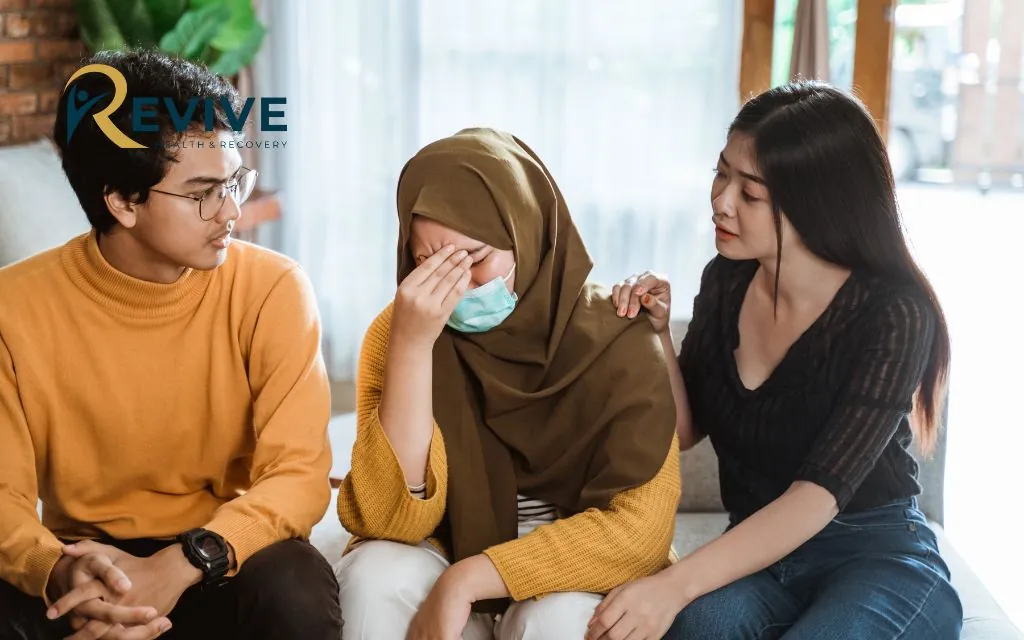
Specialized Treatment Resources in Denver and Beyond
Denver has emerged as a hub for specialized eating disorder treatment, offering various approaches to care for those with anorexia nervosa.
Denver’s World-Class Eating Disorder Treatment Centers
Colorado is home to several specialized treatment facilities, including:
- Revive Health Recovery, offering comprehensive, personalized eating disorder treatment
- The ACUTE Center for Eating Disorders, a medical stabilization unit for severe cases
- Children’s Hospital Colorado Eating Disorders Program, focusing on youth treatment
- Various outpatient specialists and group practices throughout the Denver metro area
Each facility offers different specialties and levels of care, with Revive Health Recovery providing a balanced approach that addresses both the psychological and physical aspects of recovery in one integrated program.
Comparing Treatment Approaches: Finding Your Best Match
When seeking treatment for anorexia nervosa, it’s important to find an approach that resonates with you or your loved one. Common therapeutic modalities include:
- Cognitive Behavioral Therapy (CBT)
- Family-Based Treatment (FBT)
- Dialectical Behavior Therapy (DBT)
- Nutritional counseling and meal support
- Medical monitoring and stabilization
At Revive Health Recovery, we believe in creating individualized treatment plans that combine evidence-based approaches with compassionate care. Our team can help you navigate these options to find the most effective path forward—contact us at (303) 268-4655 to discuss which approach might work best for your situation.
Insurance Coverage for Eating Disorder Treatment in Colorado
Many people worry about the financial aspects of eating disorder treatment. In Colorado, mental health parity laws require insurance companies to cover eating disorder treatment, though coverage details vary by plan.
While we can’t list specific prices here, our team at Revive Health Recovery works closely with insurance providers to maximize your benefits. We also offer guidance on alternative payment options for those with limited coverage. For specific information about coverage for your situation, contact our team at contact@revivehealthrecovery.com.
Recovery Journey: What to Expect in Colorado’s Treatment Programs
Understanding the recovery process can help reduce anxiety about seeking treatment for anorexia nervosa.
Typical Treatment Timeline in Denver Facilities
While every individual’s journey is unique, treatment for anorexia nervosa typically follows a general progression:
- Assessment and medical stabilization (if needed)
- Intensive treatment (inpatient, residential, or intensive outpatient, depending on severity)
- Step-down care with increasing independence
- Ongoing support through outpatient therapy and support groups
At Revive Health Recovery, we guide clients through each stage of this process, adjusting the timeline and approach based on individual needs and progress.
Success Rates and Recovery Statistics
Research shows that approximately 46% of people with anorexia nervosa achieve full recovery, while another 34% make partial recovery. Early intervention significantly improves these outcomes, especially for adolescents, who can achieve recovery rates up to 60% with prompt, specialized treatment.
At Revive Health Recovery, our comprehensive approach to anorexia nervosa treatment is designed to maximize recovery potential. While recovery is a complex journey, our specialized team provides the support needed to navigate this path successfully.
Family Involvement in Colorado’s Treatment Approach
Family support can significantly improve recovery outcomes, particularly for younger patients. Colorado treatment centers, including Revive Health Recovery, often incorporate:
- Family therapy sessions
- Parent and family education programs
- Skills training for supporting a loved one with anorexia nervosa
- Support resources for family members
We believe that healing happens within a supportive community, which is why we actively involve families in the recovery process when appropriate. For more information about our family involvement approach, call us at (303) 268-4655.
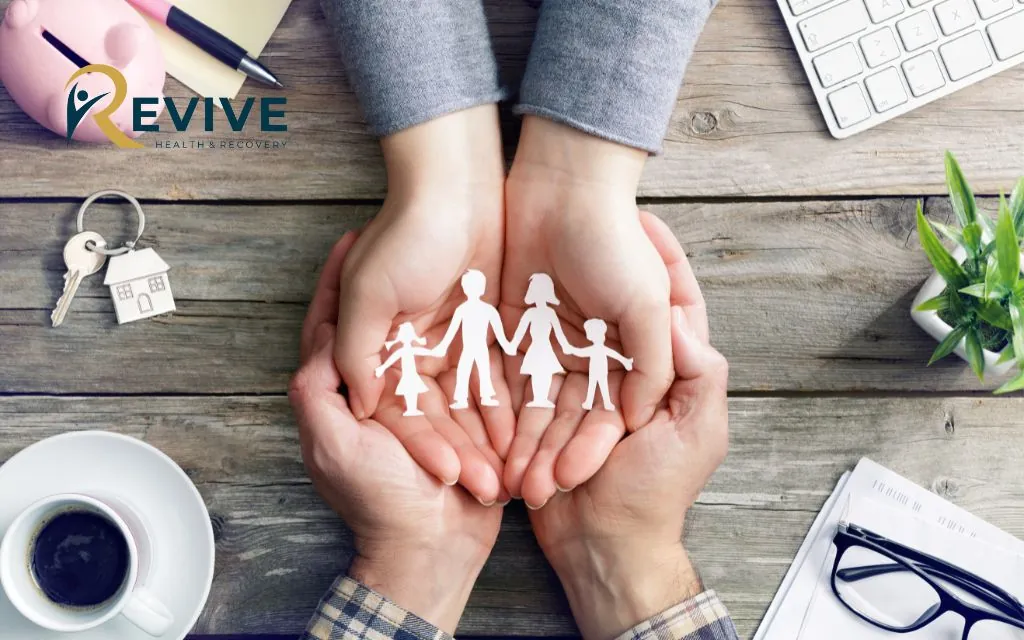
Support Beyond Treatment: Colorado’s Community Resources
Recovery from anorexia nervosa extends beyond formal treatment settings into the community.
Denver Support Groups for Patients and Families
Denver offers various support options for those recovering from anorexia nervosa:
- Peer support groups through organizations like The Eating Disorder Foundation
- Family support meetings
- Alumni programs through treatment centers
- Recovery-focused community events
Revive Health Recovery can help connect you with these community resources as part of your ongoing recovery support.
Online Resources Tailored to Colorado Residents
The digital landscape offers additional support options:
- Virtual support groups specific to Colorado residents
- Telehealth options for continuing care
- Educational webinars addressing Colorado-specific recovery challenges
- Online communities focused on eating disorder recovery
We can help you navigate these resources to find those that best complement your recovery journey.
Building a Sustainable Recovery in Colorado’s Active Culture
Creating a healthy relationship with food, body image, and exercise is particularly important in Colorado’s fitness-oriented environment. Sustainable recovery might include:
- Developing a balanced approach to physical activity
- Learning to navigate social situations that revolve around outdoor activities
- Building community connections that support recovery values
- Finding meaningful engagement with Colorado’s natural beauty that doesn’t center on body image or exercise
Our team at Revive Health Recovery understands these Colorado-specific challenges and provides guidance on building a recovery that thrives within our unique culture.

FAQs About Anorexia Nervosa in Colorado
How does anorexia nervosa differ from atypical anorexia, which is increasingly common in Colorado?
Anorexia nervosa and atypical anorexia share the same psychological symptoms—intense fear of weight gain and distorted body image—but differ in weight criteria. While anorexia nervosa involves significantly low body weight, people with atypical anorexia may have “normal” or higher weight despite significant weight loss. Both are serious conditions requiring professional treatment. Revive Health Recovery specializes in treating both traditional and atypical presentations, providing customized care for Colorado residents facing these challenges.
What specialized eating disorder treatment centers are available in Denver, Colorado?
Denver offers several specialized treatment options, including Revive Health Recovery, which provides comprehensive eating disorder care with personalized treatment plans. Other options include the ACUTE Center for Eating Disorders, Children’s Hospital Colorado Eating Disorders Program, and EDCare Denver. Revive Health Recovery stands out for our integrated approach combining medical and psychological care tailored specifically to Colorado residents.
How does Colorado’s high altitude and fitness culture affect anorexia nervosa treatment?
Colorado’s high altitude can exacerbate certain medical complications of anorexia nervosa, including cardiac issues and electrolyte imbalances. The state’s fitness culture can also mask eating disorder behaviors and complicate recovery. Revive Health Recovery addresses these challenges through altitude-specific medical protocols and specialized approaches to developing healthy relationships with exercise as part of treatment.
What is the success rate for anorexia nervosa recovery in Colorado treatment programs?
Research indicates approximately 46% of people with anorexia nervosa achieve full recovery, with another 34% making partial recovery. At Revive Health Recovery, our comprehensive approach and specialized team are dedicated to maximizing these outcomes for Colorado residents. Early intervention significantly improves recovery rates, which is why we emphasize prompt, specialized care.
What support resources are available for families of people with anorexia nervosa in Denver?
Denver offers multiple family support resources, including specialized family programs at Revive Health Recovery. We provide family therapy, education programs, and ongoing support to help families navigate the recovery journey together. Additional resources include The Eating Disorder Foundation’s support groups and NEDA Navigator services. Contact us at (303) 268-4655 to learn more about our family support options.
5 Reasons to Choose Revive Health Recovery for Anorexia Nervosa Treatment
- Colorado-Specific Expertise: Our treatment approaches are designed specifically for Denver residents, addressing the unique challenges of recovering from anorexia nervosa in our high-altitude, fitness-oriented environment.
- Comprehensive Care Model: We address both the psychological and medical aspects of anorexia nervosa in one integrated program, eliminating the need to coordinate between multiple providers.
- Specialized Team: Our professionals have extensive experience treating eating disorders in Colorado’s unique cultural and environmental context.
- Individualized Treatment Plans: We recognize that each person’s experience with anorexia nervosa is unique, creating customized treatment approaches rather than one-size-fits-all programs.
- Ongoing Support Network: Recovery extends beyond formal treatment, which is why we help connect clients with community resources and provide continuing support throughout the recovery journey.
Take the First Step Toward Healing Today
Anorexia nervosa is a serious condition, but with specialized care, recovery is possible. At Revive Health Recovery, we understand the unique challenges of eating disorder recovery in Colorado, and we’re here to help you navigate this journey with compassion and expertise.
Don’t wait to seek the support you deserve. Our team is available 24/7 to answer your questions and guide you toward the most appropriate care for your situation.
Contact Revive Health Recovery today:
- Address: 1427 S Federal Blvd, Denver, CO 80219
- Email: contact@revivehealthrecovery.com
- Phone (Available 24/7): (303) 268-4655
Your path to recovery can begin with a single call. Reach out today to learn how we can support you or your loved one in overcoming anorexia nervosa and building a healthier, more fulfilling life.
